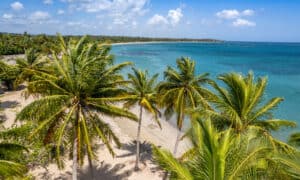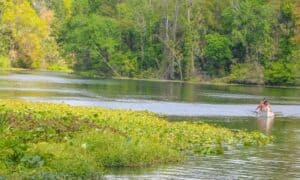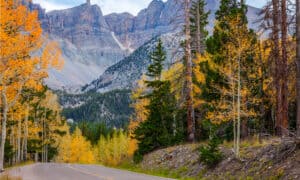With so much beauty to behold across the United States, it can be tough to choose which national park to explore. Using travel expert reviews and other factors like attractions, accessibility, and the presence of wildlife, we have compiled the 18 best national parks in the U.S. to help you make a wise decision.
Suppose you fancy great outdoor activities and natural adventures. In that case, you should check out some of the best national parks below, from Yosemite National Park, with lush meadows and imposing granite cliffs, to Glacier National Park, with preserved sedimentary rocks and icy glaciers.
Let’s take a trek into nature!
1. Yosemite National Park
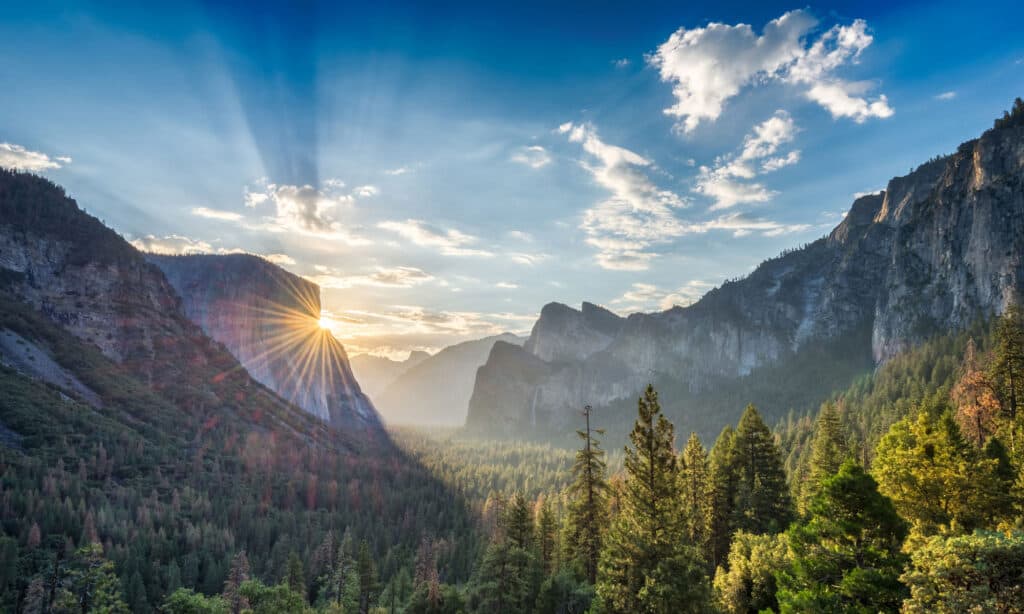
Yosemite National Park is full of magnificent granite cliffs, giant sequoia groves, glaciers, clear streams, lakes, and mountains
©iStock.com/agaliza
| Yosemite National Park | |
|---|---|
| State | California |
| Size | 759,620 acres |
| Animal to See | Black Bear |
| Attraction to See | Granite Cliffs of El Capitan and Half Dome |
There is more to Yosemite National Park than just a great valley and ancient sequoia trees. Expect to see black bears, coyotes, bighorn sheep, and mule deer.
There’s always a perfect activity to engage in at Yosemite regardless of whether you are visiting the place in winter, spring, summer, or fall. Don’t miss out on boat tours that will let you discover the beautiful scenery along the Merced River and Tenaya Lake.
2. Joshua Tree National Park
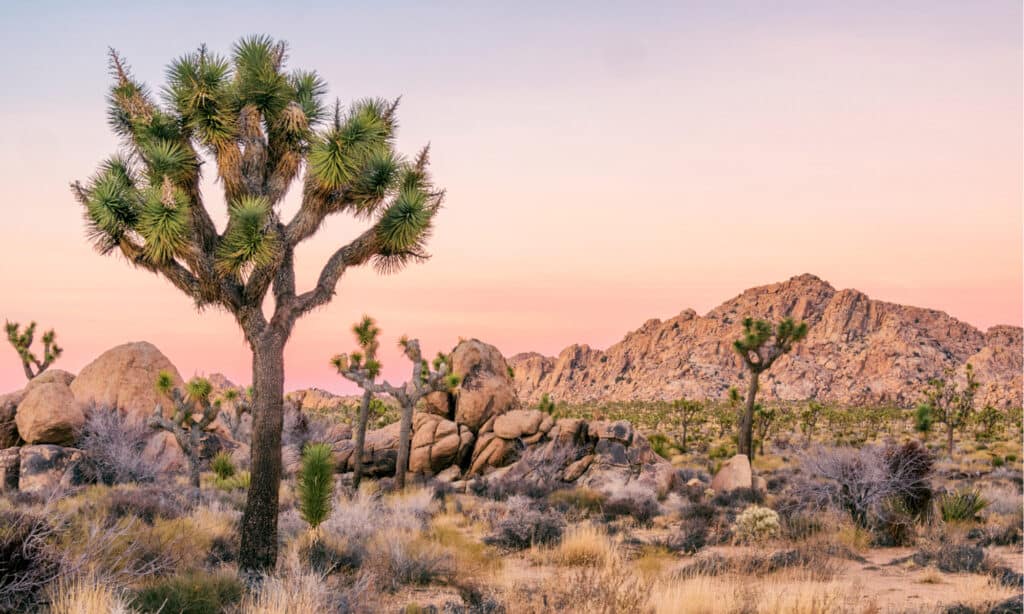
You may catch a glimpse of bobcats, white-tail deer, foxes, or birds of prey while on the trail at Joshua Tree National Park.
©Dennis Silvas/Shutterstock.com
| Joshua Tree National Park | |
|---|---|
| State | Southern California |
| Size | 795,156 acres |
| Animal to See | White-tailed Antelope |
| Attraction to See | Keys View |
Be ready to lay your eyes on the vast desert landscapes and rugged rock formations at Joshua Tree National Park, located in southern California. The park is named after the silky Joshua trees, which are scattered all over the place.
Hike through the Hidden Valley Nature Trail, a short one-mile loop that leads you through massive boulders and unique rock formations. You may also catch a glimpse of bobcats, white-tail deer, foxes, or birds of prey while on the trail.
There are about nine campgrounds at Joshua Tree where you can spend a beautiful night under starry skies.
3. Yellowstone National Park
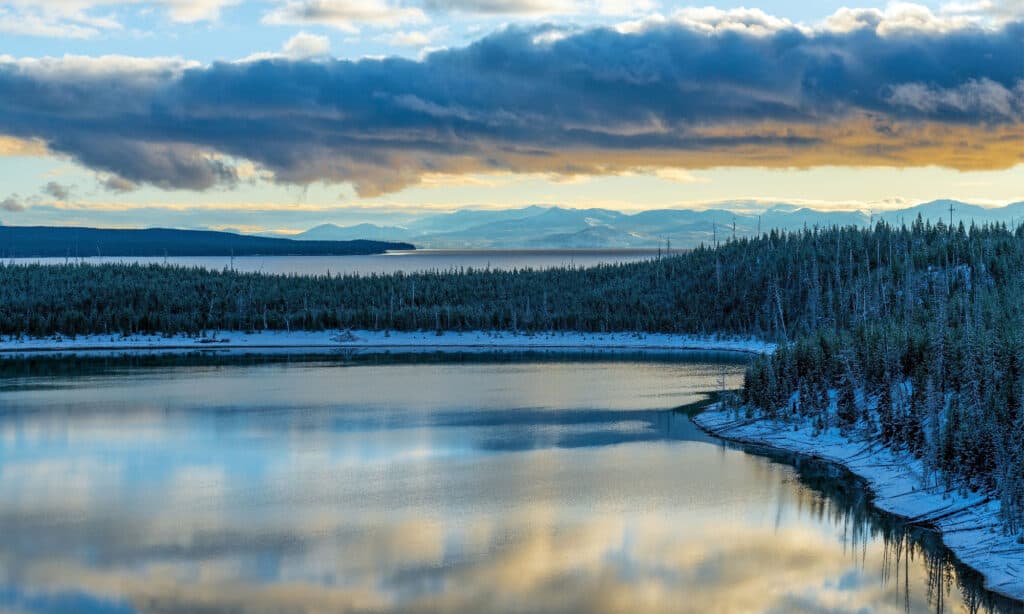
Yellowstone National Park is home to alpine rivers, hot springs, lush forests, and dramatic canyons.
©iStock.com/SL_Photography
| Yellowstone National Park | |
|---|---|
| State | Wyoming, Montano, and Idaho |
| Size | 2,219,791 acres |
| Animal to See | Canada Lynx |
| Attraction to See | Grand Prismatic Spring |
Yellowstone National Park is home to alpine rivers, hot springs, lush forests, dramatic canyons, and gushing geysers like the Old Faithful. Take a boat expedition on Yellowstone Lake and get striking views of the surrounding area.
Plan to visit the Lamar Valley and Hayden Valley for excellent wildlife-viewing opportunities. Yellowstone is home to some of the world’s most powerful predators, including mountain lions, Canada lynx, grizzly bears, black bears, coyotes, and a variety of ungulates such as mountain goats and pronghorns.
4. Acadia National Park
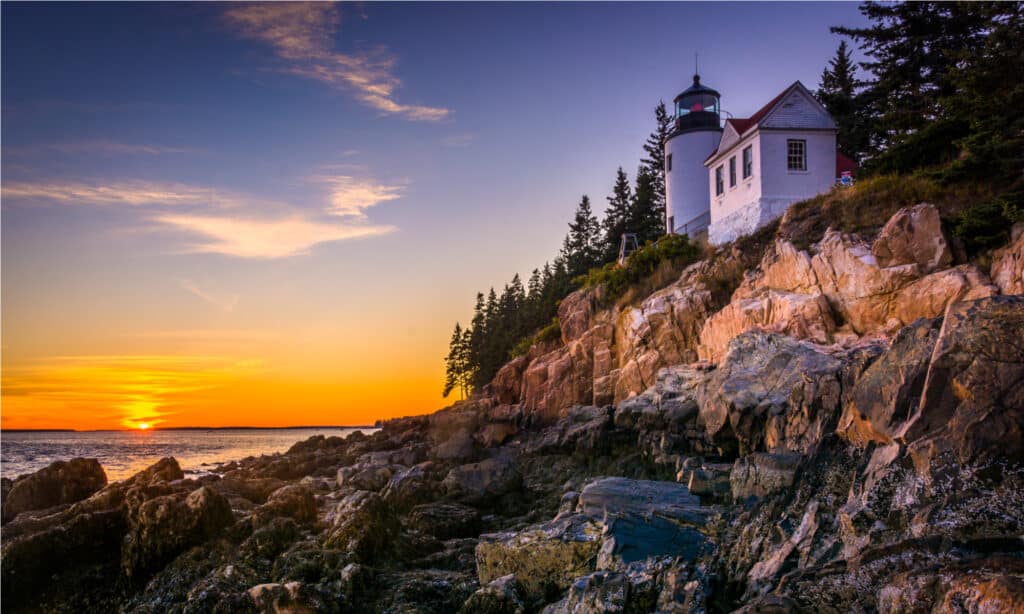
Fall is the best time to visit Acadia National Park to avoid large crowds.
©Jon Bilous/Shutterstock.com
| Acadia National Park | |
|---|---|
| State | Maine |
| Size | 49,075 acres |
| Animal to See | Bobcat |
| Attraction to See | Thunder Hole |
If you’re searching for a real adventure, then look no further than Acadia National Park in Maine. Glacier-scoured granite peaks and rocky beaches create a unique scenery that is simply out of this world.
Acadia is also home to a broad diversity of mammals. Catch sight of bobcats, snowshoe hares, otters, mints, coyotes, porcupines, and other wildlife species at the Bass Harbour Head Light Station.
Fall is the best time to visit Acadia National Park to avoid large crowds and explore the park in favorable weather conditions. However, you can still enjoy the park’s natural beauty under a blanket of snow in winter.
5. Indiana Dunes National Park
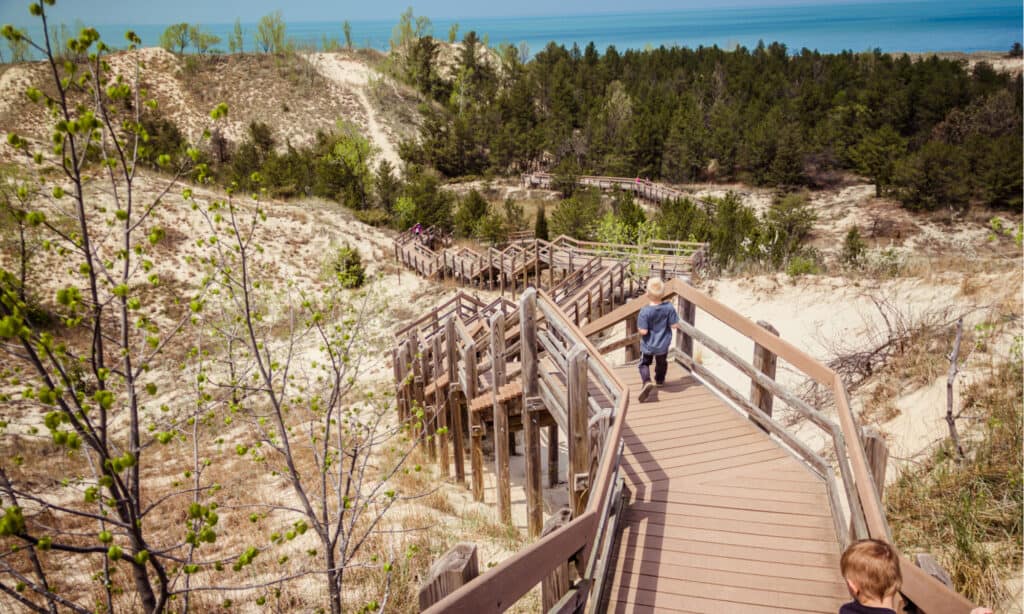
Indiana Dunes National Park is known for its diverse ecosystem of dunes, forests, prairies, and wetlands.
©Jon Lauriat/Shutterstock.com
| Indiana Dunes National Park | |
|---|---|
| State | Indiana |
| Size | 15,349 acres |
| Animal to See | Wolves |
| Attraction to See | Deep River Waterpark |
Known for its diverse ecosystem of dunes, forests, prairies, and wetlands, Indiana Dunes National Park covers about 15-20 miles along the southern shore of Lake Michigan.
If you’re into bird-watching activities, the park will seem extra appealing to you. You will enjoy scouting for rare species of birds such as the mourning dove, the chimney swift, and the common nighthawk at the sandy beach.
While hiking along the rugged dunes, meandering rivers, and forests, you may also come across chipmunks, wolves, foxes, cottontails, bobcats, and other small animals.
6. Arches National Park
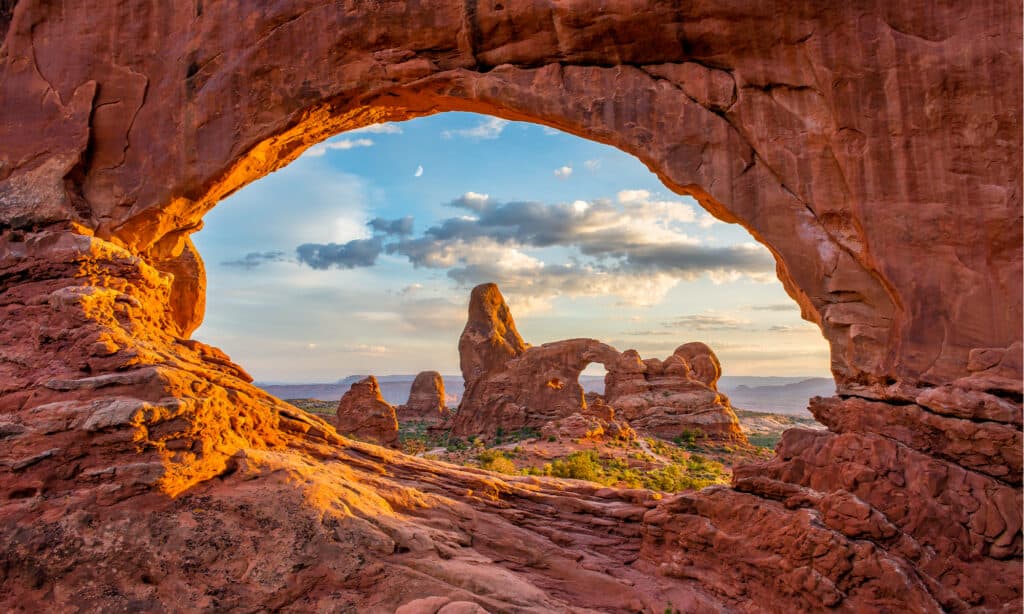
Arches National Park is famous for its geological formations, including the Balanced rock.
©anthony heflin/Shutterstock.com
| Arches National Park | |
|---|---|
| State | Utah |
| Size | 76,679 acres |
| Animal to See | Mountain Lion |
| Attraction to See | Delicate Arch, Double Arch |
With more than 2000 natural sandstone structures and desert vistas, Arches National Park is a national treasure. This protected area in Utah is famous for its geological formations, including the Balanced rock, which towers over the desert landscape in the middle of the park.
Fans of the Bruce Banner movie “Hulk” might recognize Arches National Park because it was the location for parts of the 2003 film.
The park is mainly explored by hiking. Do all the hikes if you have more time at the park, or you can choose a few trails to explore in half a day. Early mornings and late evenings are the best times to visit the Arches.
Apart from fewer crowds and cooler temperatures during sunsets and sunrises, you’ll also get an opportunity to view many animals such as ringtails, skunks, bobcats, and many species of snakes and lizards.
7. Grand Canyon National Park
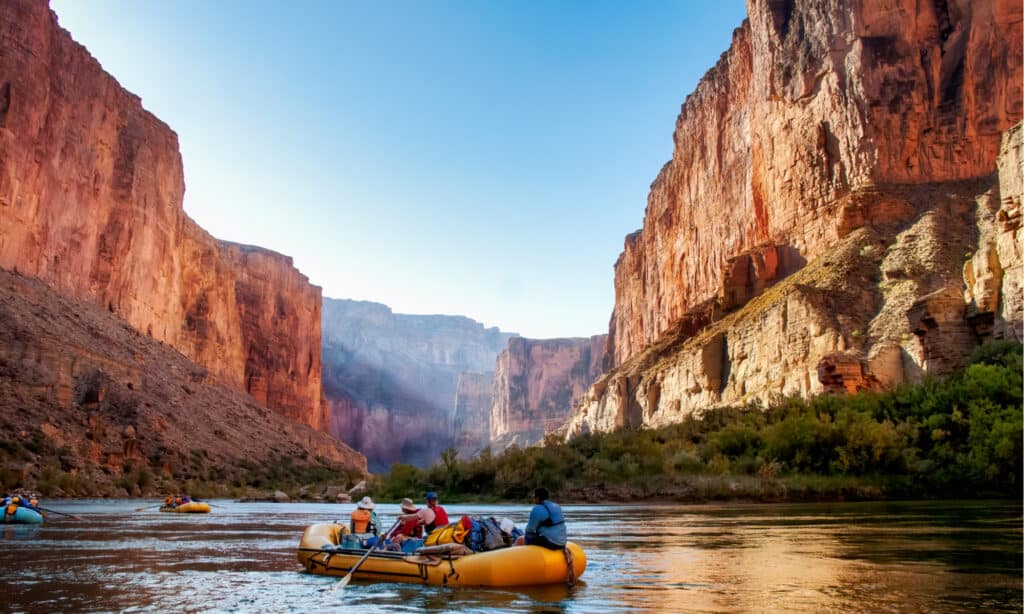
Grand Canyon National Park is home to mountain lions, grey foxes, mule deer, desert bighorn sheep, and various reptiles.
©Jim Mallouk/Shutterstock.com
| Grand Canyon National Park | |
|---|---|
| State | Arizona |
| Size | 1,218,375 acres |
| Animal to See | Mountain Lion |
| Attraction to See | Mather Point Overlook |
Situated in northwest Arizona and carved by the Colorado River, Grand Canyon National Park provides a plethora of natural wonders to behold. The park offers fantastic vistas and a protected natural environment.
During your canyon visit, there are many species of animals to discover. The park is home to mountain lions, grey foxes, mule deer, desert bighorn sheep, and a variety of reptiles that are adapted to survive in the harsh desert climates of the Grand Canyon.
8. Glacier National Park
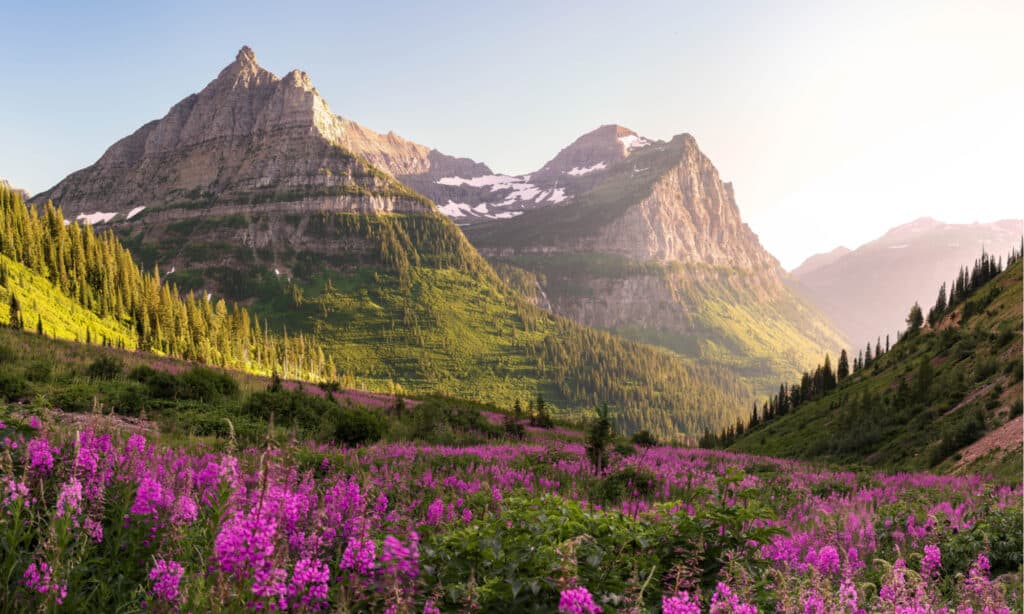
Glacier National Park provides approximately 700 miles of hiking trails that you can explore.
©TheBigMK/Shutterstock.com
| Glacier National Park | |
|---|---|
| State | Montana |
| Size | 1,013,322 acres |
| Animal to See | Grizzly Bear |
| Attraction to See | Lake McDonald |
Known as the land of “wilderness and glacier-curved peaks,” Glacier National Park provides approximately 700 miles of hiking trails that you can explore. The park is also made up of diverse landscapes of meadows, forests, mountains, and lakes.
Glacier is home to different wild animals, from grizzly and black bears to mountain goats and bighorn sheep, wolves, and wolverines. You might see almost all of them while walking in the park.
9. Bryce Canyon National Park
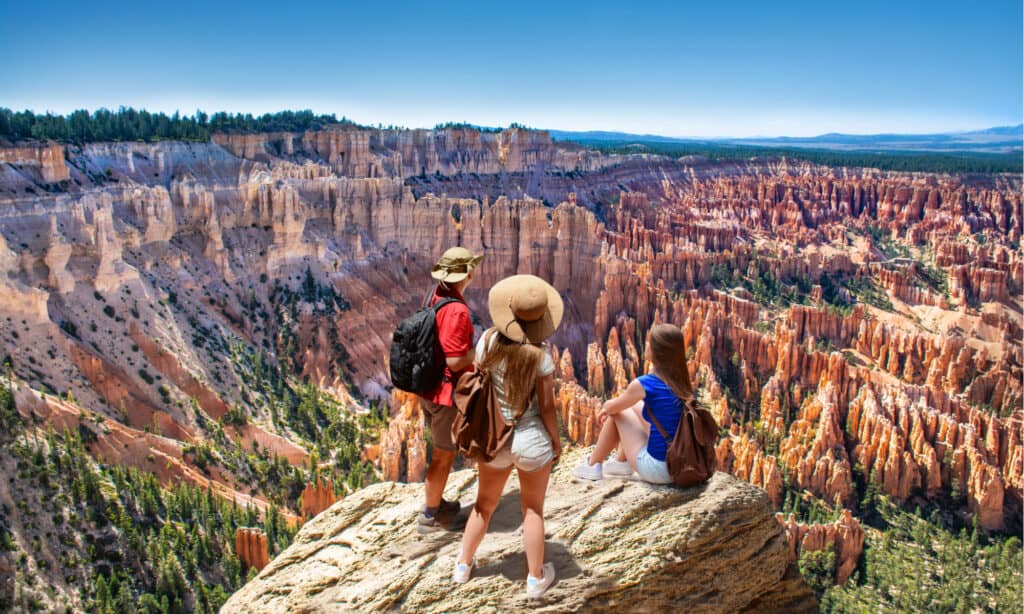
Bryce Canyon National Park revolves around pink cliffs, red rocks, and endless vistas on the western edge of the Markagunt Plateau.
©Margaret.Wiktor/Shutterstock.com
| Bryce Canyon National Park | |
|---|---|
| State | Utah |
| Size | 35,835 acres |
| Animal to See | Green Basin Rattlesnake |
| Attraction to See | Navajo/Queens Garden Loop |
Bryce Canyon National Park is Utah’s well-known park that revolves around pink cliffs, red rocks, and endless vistas on the western edge of the Markagunt Plateau. All the cliffs are part of the Claron Formation, which constitutes sandstone and limestone strata.
Visitors flock to the plateau and the canyons of the park to see mountain lions, prairie dogs, rattlesnakes, elks, chipmunks, and short-horned lizards. You may spot migratory hummingbirds and peregrine falcons crossing through the forested plateau, searching for food and shelter.
10. Zion National Park
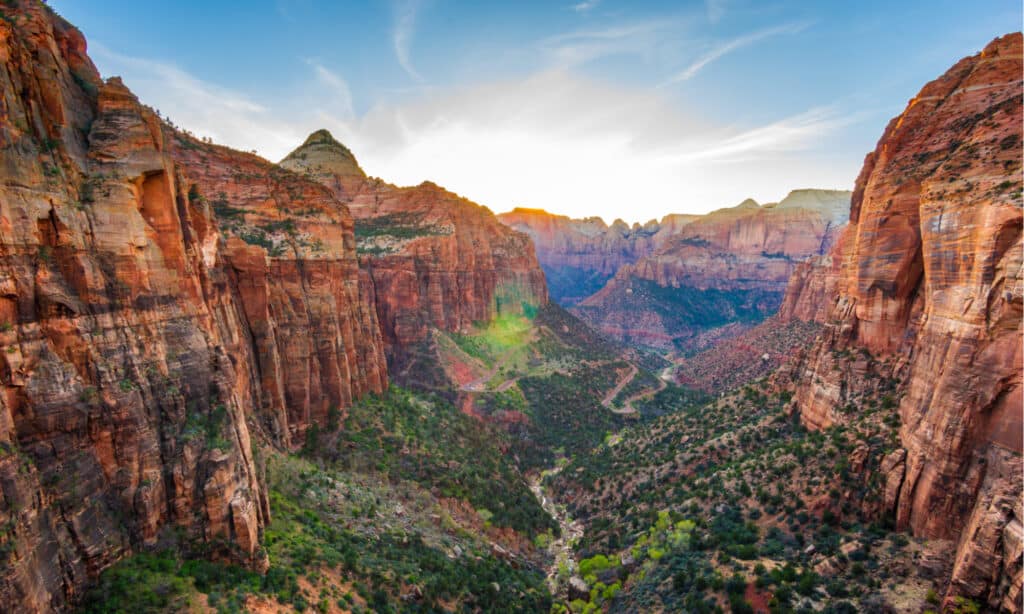
Zion National Park is best known for its steep red cliffs.
©Asif Islam/Shutterstock.com
| Zion National Park | |
|---|---|
| State | Southwest Utah |
| Size | 146,597 acres |
| Animal to See | Mountain Lion |
| Attraction to See | Step Red Cliffs |
Set in the heart of southwest Utah, Zion National Park is best known for its steep red cliffs. You can hike along the red cliff, which is generally considered a more accessible route in the park, leading to spectacular scenery.
Suppose you’re looking for wildlife to view. In that case, you can visit the Weeping Rock Area, a perfect habitat for various animal species, including mountain lions, white-throated swifts, bighorn sheep, and the petite kangaroo rat.
11. Rocky Mountain National Park
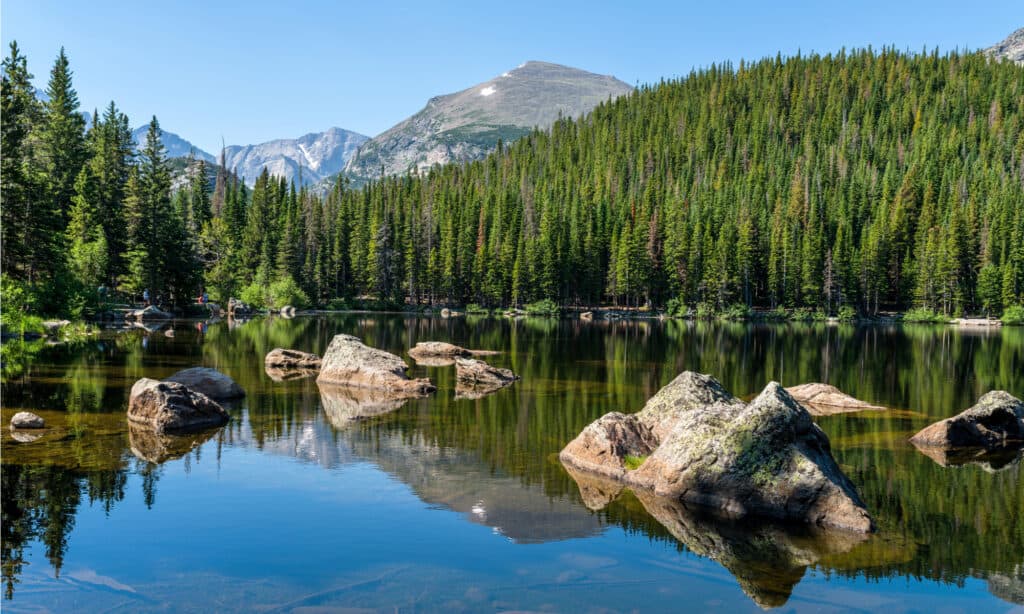
Rocky Mountain National Park is located in Colorado.
©Sean Xu/Shutterstock.com
| Rocky Mountain National Park | |
|---|---|
| State | Colorado |
| Size | 265,461 acres |
| Animal to See | Mountain Lion |
| Attraction to See | Bear Lake |
With towering landscapes and magnificent alpine tundra, Rocky Mountain National Park is a well-known hiking spot in Northern Colorado.
Many people visit the park throughout the year for the splendid views they can get from the Many Parks Curve, Fairview Curve, and Forest Canyon Overlook. Get the best views of the peaks from the surrounding Bear Lake Trail.
Wildlife viewing is another main attraction at Rocky Mountain National Park. You can find mountain lions, pikas, marmots, bobcats, bears, elks, and a lot of different bird species in the park.
12. Olympic National Park
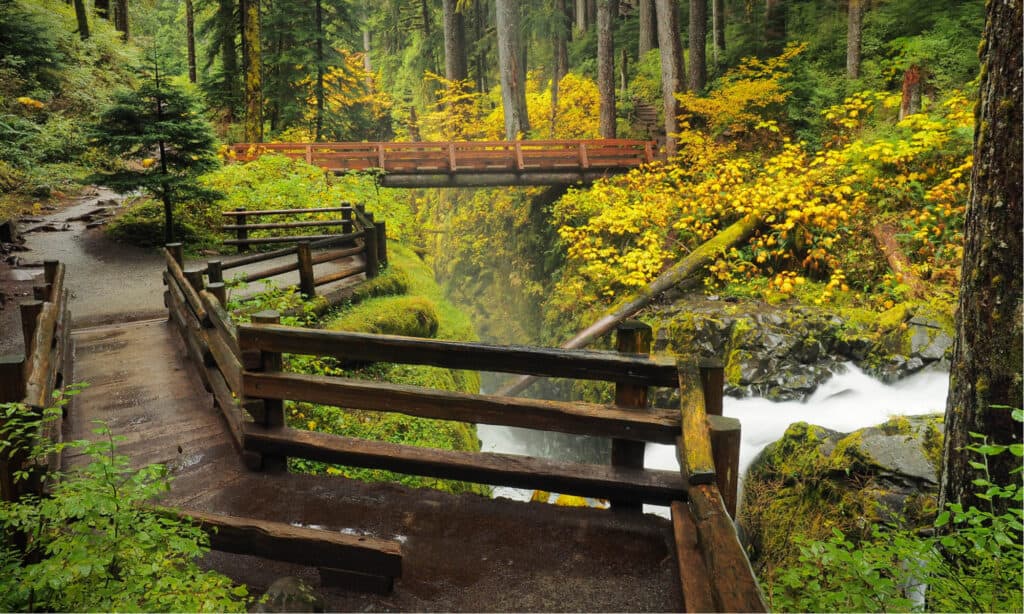
Deer, salamanders, mountain lions, mountain goats, and gophers roam in the mountainous and forested areas within the Olympic National Park.
©Jakapong Paoprapat/Shutterstock.com
| Olympic National Park | |
|---|---|
| State | Washington |
| Size | 922,650 acres |
| Animal to See | Mountain Lion |
| Attraction to See | Hurricane Ridge |
The dramatic peaks and the old-growth forest are on the list of things to see at Olympic National Park, where the summit of glacier-clad Mt. Olympus takes you on an adventurous journey.
You can’t beat the wildlife views of this world-famous Washington national park. Deer, salamanders, mountain lions, mountain goats, gophers, and many other animals roam in the mountainous and forested areas within the park.
13. Hot Springs National Park
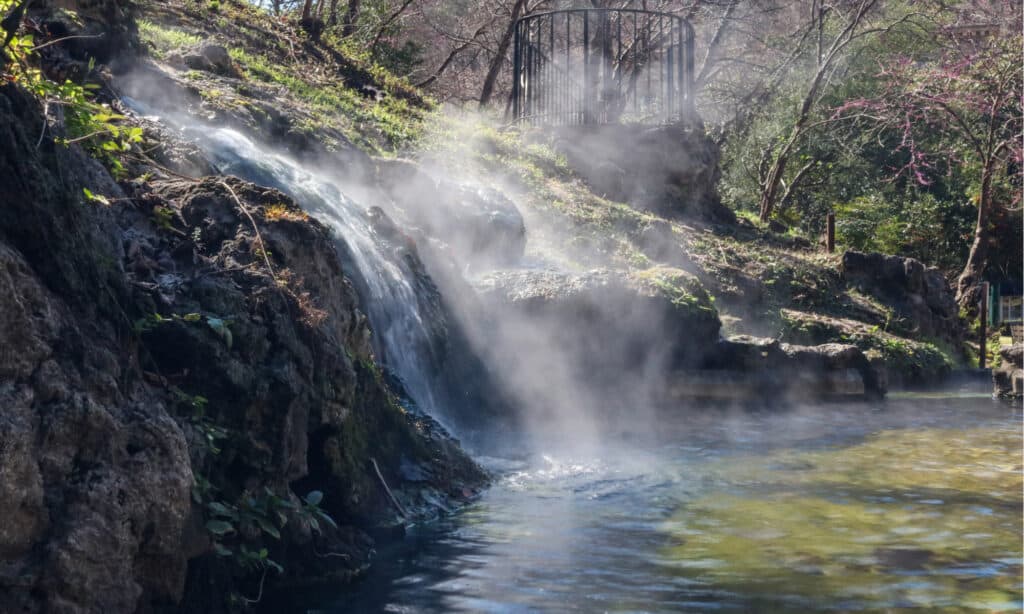
Hot Springs National Park is one of the best places to see mountains and creeks while hiking through the woods.
©Bram Reusen/Shutterstock.com
| Hot Springs National Park | |
|---|---|
| State | Arkansas |
| Size | 5,550 acres |
| Animal to See | White-tailed Deer |
| Attraction to See | Hot Springs Mountain Tower |
Historians and nature lovers adore Hot Springs National Park because of its unique combination of water sources, lithology, and rich cultural past. I think it’s one of the best places to see mountains and creeks while hiking through the woods.
Visit Arkansas Alligator Farm and Petting Zoo to see alligators. Inside the farm is a small museum with several collections, including a mummified carcass that impersonates a “Merman” like the ones in Ripley’s Believe It or Not popular culture museum.
14. Shenandoah National Park
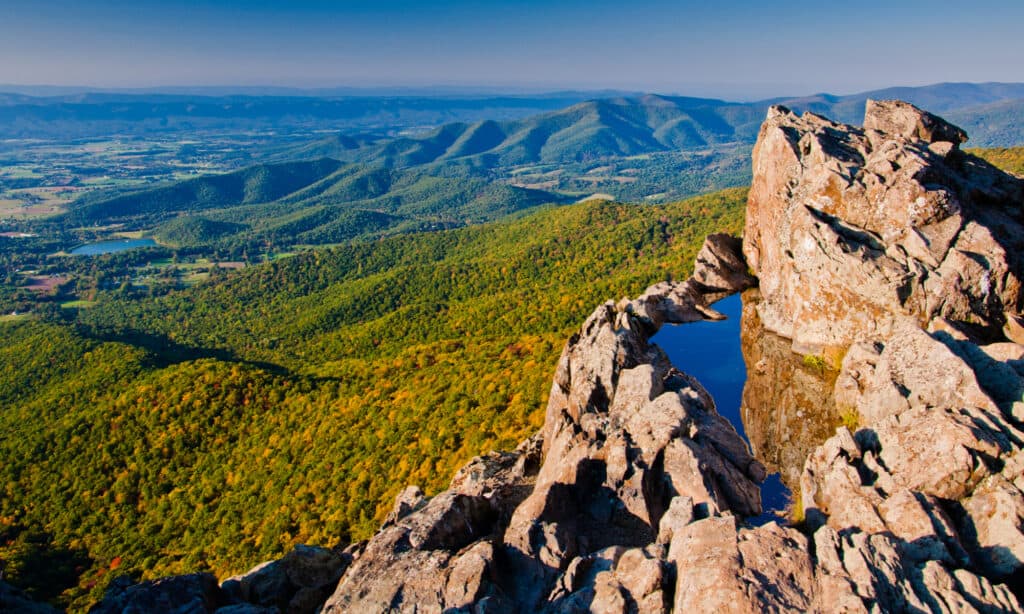
Shenandoah National Park is best known for its unique backcountry hiking and camping grounds.
©Jon Bilous/Shutterstock.com
| Shenandoah National Park | |
|---|---|
| State | Virginia |
| Size | 199,173 acres |
| Animal to See | Black Bear |
| Attraction to See | Luray Caverns |
Extending along the Blue Ridge Mountains, Shenandoah National Park is best known for its unique backcountry hiking and camping grounds. Make sure you explore Skyline Drive, one of the most incredible things to do while at the park.
Shenandoah National Park is the perfect place to see opossums, raccoons, grey foxes, bobcats, groundhogs, and skunks. You’re likely to spot at least one bear within the park, especially on Skyline Drive and at the Dickey Ridge Visitor Center.
15. Sequoia National Park
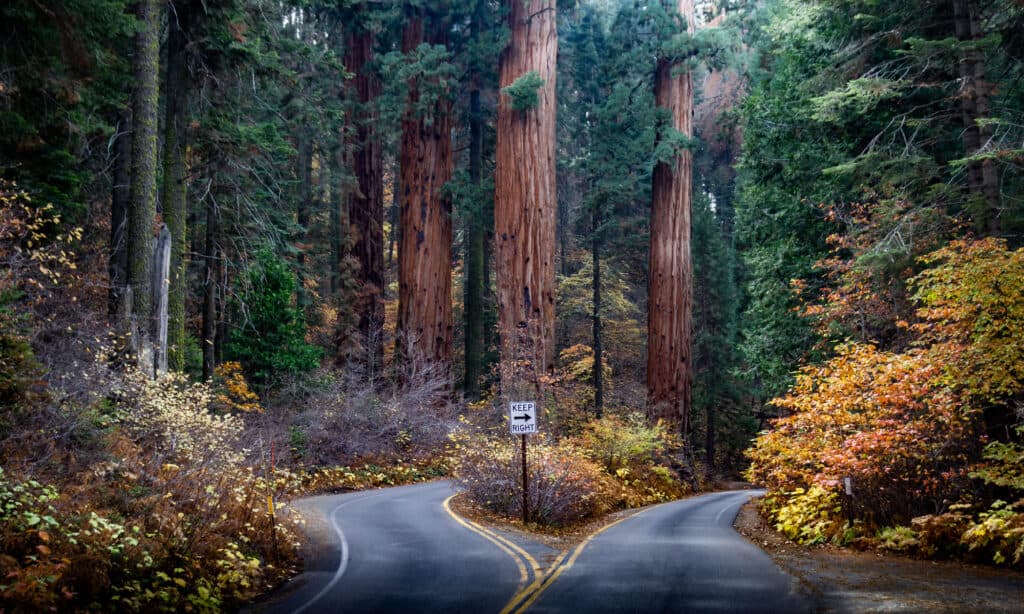
Sequoia National Park is the perfect place to see black bears, deer, skunks, coyotes, badgers, grey foxes, woodrats, and gophers.
©iStock.com/Sara Edwards
| Sequoia National Park | |
|---|---|
| State | California |
| Size | 404,064 acres |
| Animal to See | Black Bear |
| Attraction to See | General Sherman |
Located about 80 miles east of Fresno, California, Sequoia National Park is a super cool place that you can visit any time of the year.
The park is home to vast caverns, deep canyons, huge mountains, and giant sequoia trees that mimic the park’s rugged landscape. Whether you’re flying in a helicopter over the park or hiking the trails, the majesty of Sequoia National Park is guaranteed to leave you completely breathless.
See local wildlife near manzanita and bitter-cherry bushes, like black bears, deer, skunks, coyotes, badgers, grey foxes, woodrats, and gophers.
16. Dry Tortugas National Park
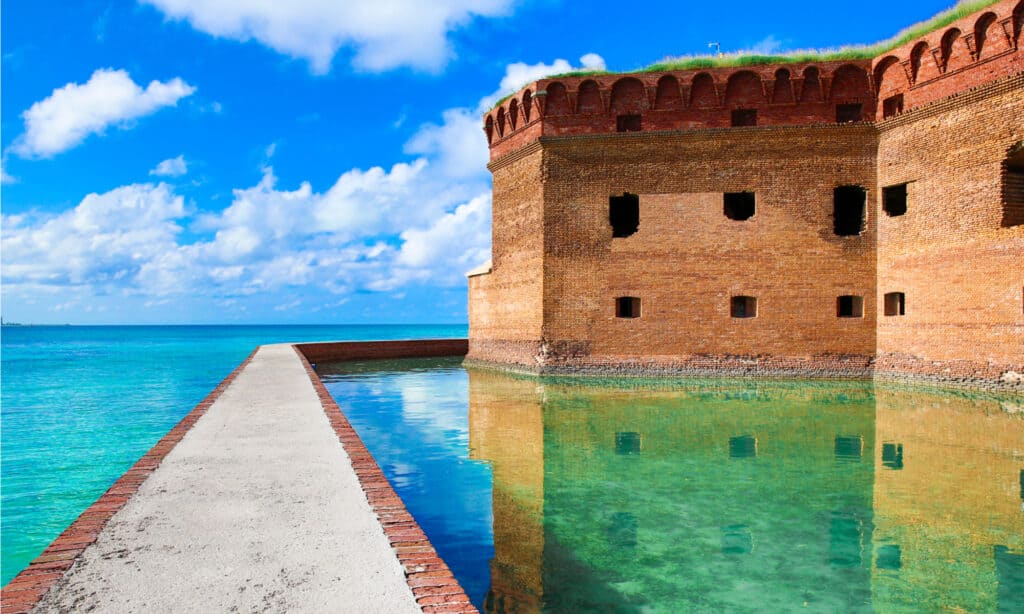
Dry Tortugas National Park is the only national park in Florida with seven islands, coral reefs, and a coastline to admire.
©T-Anderson Photography/Shutterstock.com
| Dry Tortugas National Park | |
|---|---|
| State | Florida |
| Size | 64,701 acres |
| Animal to See | Shark |
| Attraction to See | Loggerhead Lighthouse |
Dry Tortugas National Park is your ideal place if you love steamy beaches and islands. It’s the only national park in Florida with seven islands, coral reefs, and a coastline to admire.
Dry Tortugas is home to marine species, such as lobsters, sea turtles, octopuses, sharks, squids, and Goliath groupers. Visit the park during spring and fall migration if your main aim is to watch the birds migrating.
17. Great Smoky Mountains National Park
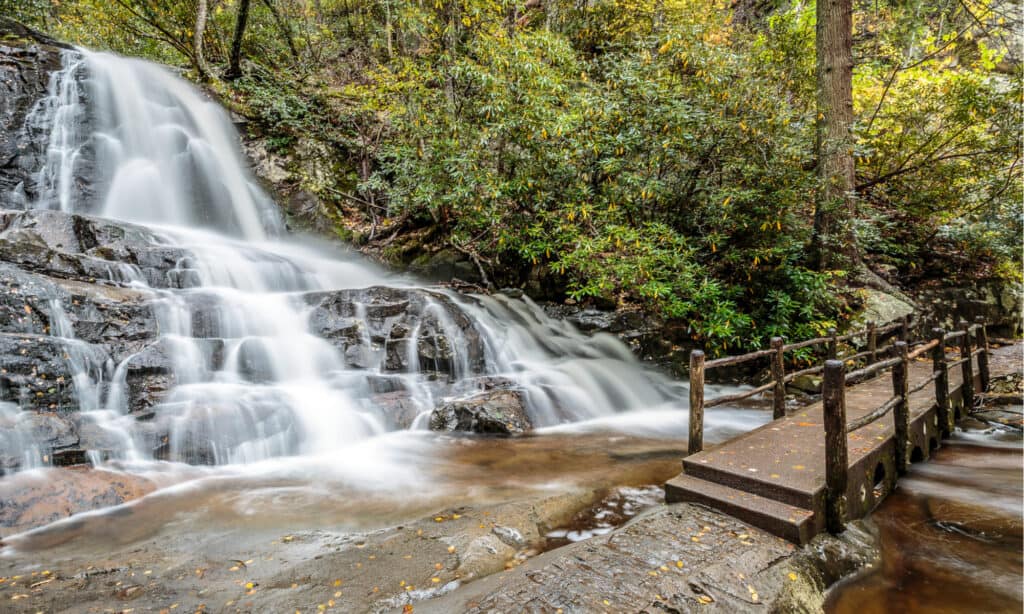
Great Smoky Mountains National Park is located between the borders of North Carolina and Tennessee.
©Weidman Photography/Shutterstock.com
| Great Smoky Mountains National Park | |
|---|---|
| State | Borders North Carolina and Tennessee |
| Size | 522,427 acres |
| Animal to See | Black Bear |
| Attraction to See | Ober Gatlinburg |
Straddling North Carolina and Tennessee, the Great Smoky Mountains National Park continues to wow visitors with its unique landscape and breath-taking wildflowers that bloom throughout the year.
Enjoy the impressive trails in the park, such as the Roaring Fork Motor Trail and the Chimney Tops Trail, while admiring the spectacular views of mountain peaks and rock formations. Don’t miss out on herds of elks in the Cataloochee Valley.
A combination of wildlife, such as black bears and cougars, the old rustic homesteads, and the magnificent old-growth forests is a must-see for avid adventurers and history buffs.
18. Mount Rainier National Park
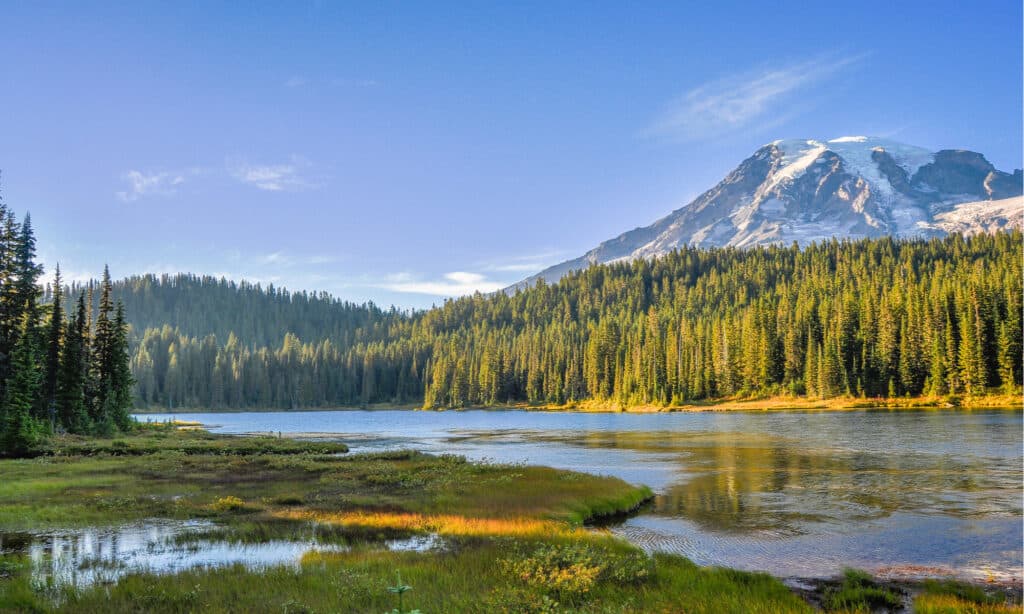
Mount Rainier National Park offers many outdoor activities, including hiking, biking, camping, scenic drives, and ice climbing during winter.
©Vidpen/Shutterstock.com
| Mount Rainier National Park | |
|---|---|
| State | Washington |
| Size | 236,381 acres |
| Animal to See | Black Bear |
| Attraction to See | Myrtle Falls |
Mount Rainier National Park is home to the world-renowned volcanic glacier cave system. It’s among the highest volcanic peaks in the United States. Consider splurging on a Seattle hot air balloon ride to get the perfect views of Mount Rainier’s surreal landscapes.
The park offers many outdoor activities to explore, including hiking, biking, camping, scenic drives, and ice climbing during winter. Make sure you visit Myrtle Falls, one of the prettiest views in the park.
Catch a glimpse of elks, white-tailed deers, mountain lions, black bears, squirrels, and numerous species in the Sunrise, Paradise, and Longmire area.
The photo featured at the top of this post is © Eric Urquhart/Shutterstock.com
Thank you for reading! Have some feedback for us? Contact the AZ Animals editorial team.



